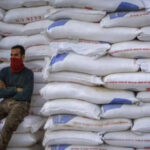
By Elijah J Magnier – Mar 21, 2022
Russia and Ukraine are taking the first steps towards ending the war through direct and video negotiations. After the past four rounds, progress was registered between the negotiators, notwithstanding the continuous clanging of arms. Ukraine realised that the West was sanctioning Russia to weaken its economy without necessarily having any consequence for the ongoing war. Western countries were also ready to provide media support and weapons for the army to fight alone. In contrast, the Ukrainians thought they could drag the world into a much larger war against Russia. The battle will continue as long as officials in Kyiv remain unconvinced that negotiations are the only way to end the war. However, the devil is still in the details of the final agreement. Therefore, the military operations proceed, slowly but steadily.
“Ukraine was NATO’s junior partner, which played a dominant role in our country,” said Mykhailo Podolyak, a member of the Ukrainian delegation and advisor to President Volodymyr Zelenskyy’s chief of staff.
RELATED CONTENT: SanctionsKill Campaign Statement on Ukraine Conflict
There is no doubt that the US has been preparing, since the era of Barack Obama, for Ukraine’s entry into NATO, raising the readiness of the military forces, tripling the number of the army personnel and training it for the use of Western weapons. The US provided Javelin anti-tank missiles and $2.7 billion in military assistance over many years. The amount significantly increased with the beginning of the war. Germany broke its long-standing foreign policy banning all lethal weapon exports to conflict zones. It delivered 1,000 anti-tank rocket launchers, 500 Stinger surface-to-surface missiles, Howitzers, armed vehicles and thousands of tons of fuel. Sweden, Finland, Denmark, Norway, Croatia, Slovenia, Italy, France, Belgium, the Netherlands, Portugal, the Czech Republic, Romania and Canada delivered thousands of machine guns, rifles and anti-tank weapons. Turkey provided the Bayraktar TB2 armed drone.
However, the fact that Ukraine remains outside NATO officially prevented the North Atlantic alliance from being involved in fighting the Russian forces – it is, however, indirectly. President Vladimir Putin made his military move before Kyiv’s membership acceptance in the alliance. Consequently, Ukraine forfeited its right to resort to the fifth article which requires the other NATO countries to defend Ukraine. Thus, this ongoing war prevented, so far, the outbreak of a third world war and a direct collision with Russia.
RELATED CONTENT: US, NATO, Russia, Ukraine and the Whiteness of Empire
The US and Europe have made every effort to separate Ukraine from Russia since 2004.It started with the US-organised “Orange Revolution” – a sophisticated method used in Serbia, Georgia, Belarus and Nicaragua in four years by US consultancies, pollsters, diplomats and NGOs –that failed to overthrow the regime in Kyiv at that time. The US succeeded with the second well-organised demonstration in late 2013 through the “Euro-Maidan” revolution. The demonstrators succeeded in pushing then-Ukrainian President Viktor Yanukovych to flee the country for his refusal to sign an association agreement with the European Union. The deal was encouraged by then OSCE Chief Catherine Ashton in order to bring Ukraine further away from Russia.
A contact was leaked between US Assistant Secretary of State Victoria Nuland discussing the future of the “Ukrainian revolution” with the US ambassador to Ukraine Geoffrey Pyatt in 2014 and deciding who should rule Ukraine. The US never liked the fact that Europe was “hesitant in picking a fight with Russia”. Nuland names and chooses the name of the new Ukrainian officials in the government that will follow Yanukovych’s government and says that “UN will help so fuck the EU.” America was running the game on the European continent. Ukraine is ranked as one of the most corrupt countries in Europe, which created ample space for external influence to impose a foreign agenda on the country. Under President.
Featured image: IMAGE: AP

Elijah J. Magnier
Elijah J. Magnier is a journalist working as AL Rai Chief International, veteran War correspondent, Terrorism & CT: Lebanon, Iraq, Syria, Iran, Libya & more. Middle East, London, Italy & Brussels
- Elijah J. Magnier#molongui-disabled-link
- Elijah J. Magnier#molongui-disabled-link
- Elijah J. Magnier#molongui-disabled-link
- Elijah J. Magnier#molongui-disabled-link
Tags: Barack Obama Germany Mykhailo Podolyak North Atlantic Treaty Organization (NATO) Russia Ukraine weapons
Share this:
- Click to share on Twitter (Opens in new window)
- Click to share on Facebook (Opens in new window)
- Click to share on LinkedIn (Opens in new window)
- Click to share on WhatsApp (Opens in new window)
- Click to share on Reddit (Opens in new window)
- Click to share on Telegram (Opens in new window)
- Click to email a link to a friend (Opens in new window)




